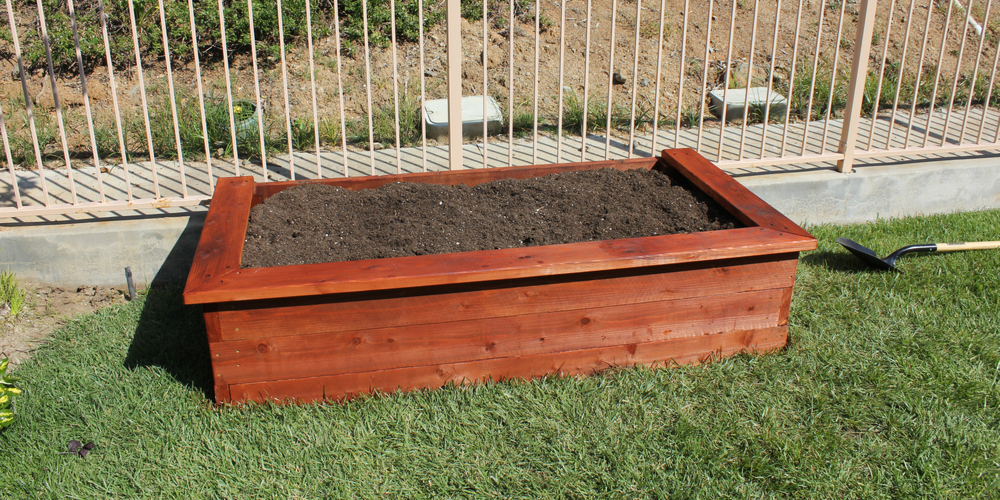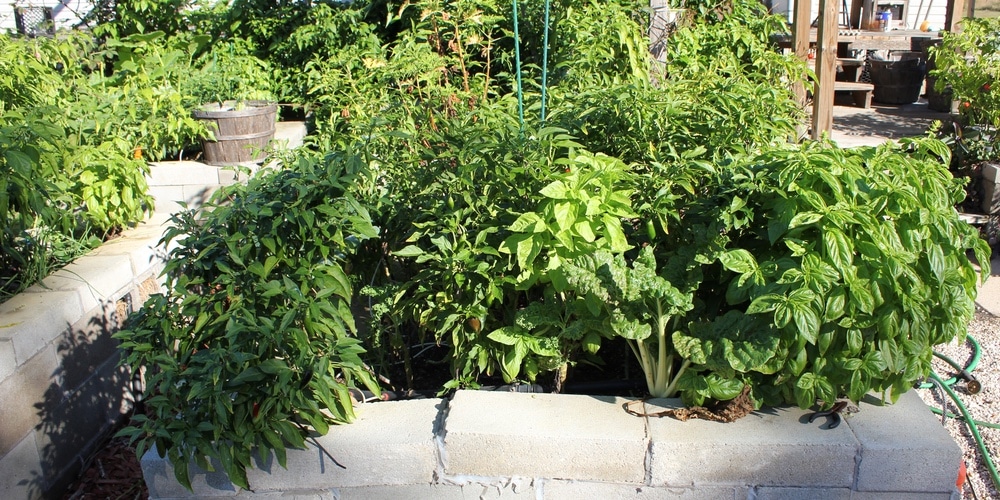Raised garden beds are practically higher than the ground in your front yard or backyard. But sometimes, drainage can be an issue if it’s poor and way below the required capacity.
Quick Answer
Raised beds are notorious for holding water, and it can even be worse if you overwater them. The impact can be immense, eventually impacting your plants and vegetables. The answer is to create a drainage system.
This article explains why raised garden beds need drainage and their capacity to hold water.
Why do Raised Garden Beds Need Drainage?

Contrary to popular belief, raised gardens’ drainage is usually subpar and needs some boosting. Most homeowners use containers to set them up. And while some have an open underneath, it’s not guaranteed that their drainage will always be good.
The root density can impede drainage, and the foliage minimizes evaporation, making it suitable for minimum watering. And since the containers reduce the surface area for drainage, water usually takes a long to seep into the soil.
Things can worsen if the soil has poor drainage capacity since it worsens the plight. And if your use unmonitored sprinkler irrigation or flood it, there’s a big chance that it’ll retain water.
However, some soils are vastly good at allowing water to seep through, and draining wouldn’t be a problem. If your raised garden bed stagnates in water, it may induce fungal diseases, including foot rot disease.
How Long Do Raised Garden Beds Hold Water?
The span in which raised garden beds hold water depends on the soil condition, mulching, or the watering frequency. However, some soils don’t have a knack for drainage, and regardless of a lower watering frequency, they won’t improve.
Ideally, you can water your garden every two days, but keep in mind that the ambient weather or long-standing climatic conditions determine this span if you’ve mulched your garden or mixed the soil with water-absorbent material.
What Are the Effects of Poorly Drained Soils?
If your raised garden bed doesn’t drain water adequately, you have a lot to lose. Waterlogged conditions usually stall plant growth and development, thanks to reduced air pockets in the soil.
Plant roots need properly aerated soils to develop, and water typically replaces the pockets, making them unavailable. If the roots don’t develop and take up nutrients, your plants will eventually wither and die.
Waterlogged soils also reduce your plants’ capacity to resist diseases and pathogens. And prolonged periods of foliage exposure to marshy conditions invite fungal attacks on leaves, prohibiting photosynthesis.
How Best Can You Improve Drainage on Raised Garden Beds?
If your raised garden bed has poor drainage due to soil conditions or the plants you planted don’t appreciate those levels, please do the following.
Minimize watering
One best way to help with drainage is to cut down the watering frequency. However, you need to understand the drainage level your crops appreciate so you don’t underwater them.
You can start by experimenting with a few liters off and check how the soil responds. Gradually, you’ll get to grips with the right amount of water as you keep close tabs.
Add some compost
Compost is universally a perfect way to improve soil drainage since it improves soil aeration. Nonetheless, ensure that the compost has adequately decomposed to prevent “burning” the roots and eventual death. Compost improves the soil structure by adding some juice to the soil.
Plant some cover crops
Adding some alfalfa or any less suppressive cover crop helps a great deal in improving the drainage. However, it would help to work with crops with deep-penetrating roots to help loosen the hardpans and compacted soils.
Besides, these plants draw nutrients from the deeper layer, making them available for the shallow-rooted plants to savor. That way, you attain minimal cultivation.
Loosen and open up the soil
Sometimes the problem could be a hardpan formation, preventing the water from seeping through. Leached minerals from fertilizers can compact the deeper layers, and it helps to break them.
You can use a broadfork to dig the soil up and improve aeration and drainage capacity.
Do raised beds need drainage: Conclusion
Raised garden beds need proper drainage for a good crop and plant growth. The soil usually doesn’t have the natural capacity to drain its water in most situations, and therefore, intervening will help the situation.
Waterlogged conditions impede plant growth and will eventually lead to their deaths.
Related Article: Non Toxic Garden Bed Liner Options
